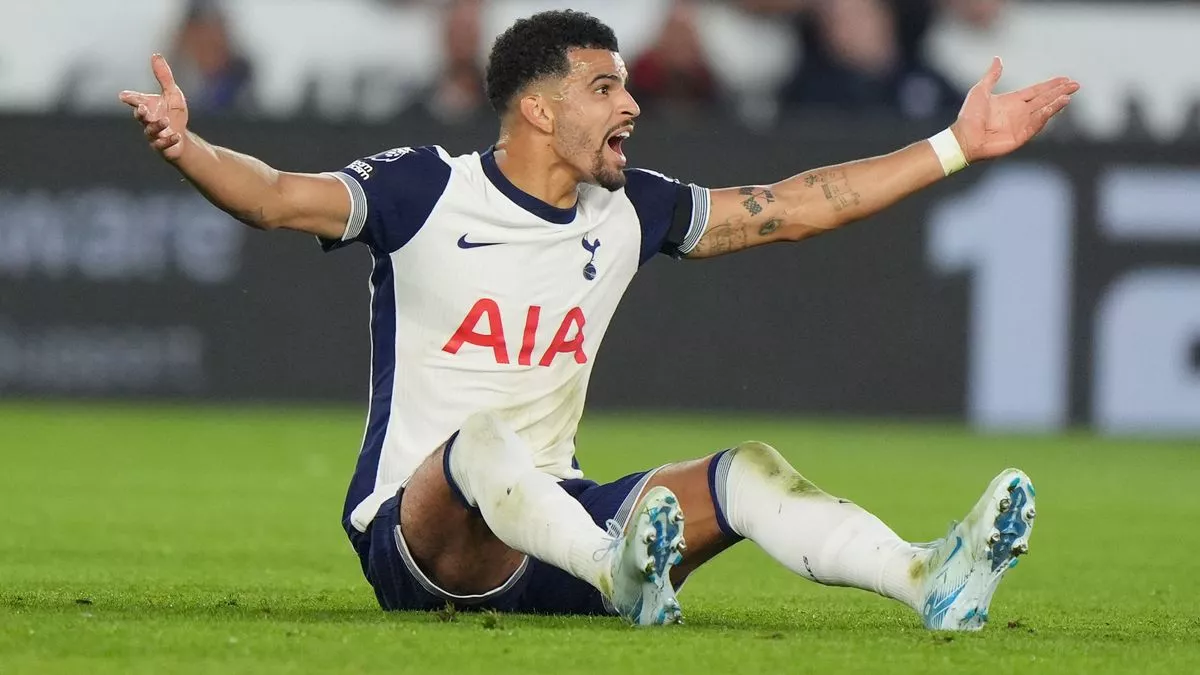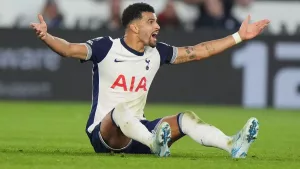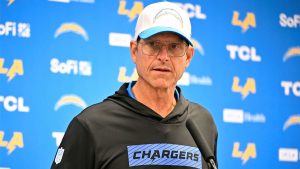
BREAKING NEWS:Tottenham’s signing of Dominic Solanke has come under fire…

Tottenham Hotspur’s acquisition of Dominic Solanke from Bournemouth has sparked considerable debate among football pundits and fans alike. At first glance, the transfer may seem like a calculated move to bolster the squad with a promising English striker. However, a deeper analysis reveals that the deal is fraught with questions regarding value, squad needs, and long-term strategy.
Solanke, who has shown flashes of potential throughout his career, is an intriguing but controversial figure. He emerged from Liverpool’s academy with significant promise, winning the Golden Boot in the U20 World Cup and showing glimpses of his talent at various levels. However, his tenure at Bournemouth has been marked by inconsistency. Despite occasional standout performances, he has struggled to maintain a high level of form, contributing modestly to Bournemouth’s campaigns. His inability to secure a regular spot and make a consistent impact raises concerns about his readiness for a high-pressure club like Tottenham.
One primary point of contention is the financial aspect of the deal. Tottenham’s reported fee for Solanke, which could rise significantly with add-ons, has been criticized as an overvaluation given the striker’s recent performances. In the context of the current transfer market, where astronomical sums are often justified by immediate impact or potential, paying a premium for a player with limited top-flight experience and a patchy record might appear excessive. The risk associated with such an investment is palpable, especially when juxtaposed with other more established or higher-profile targets who could have been acquired for similar sums.
Moreover, the signing has raised questions about Tottenham’s strategic direction under their current management. With a squad that has undergone substantial changes in recent seasons, the focus has largely been on integrating young talent and building for the future. The decision to invest heavily in Solanke, a player whose career trajectory has not yet demonstrated consistent elite performance, seems at odds with a strategy that should ideally prioritize proven quality or high-potential stars with more robust track records. It also brings into question whether Solanke fits into the tactical system employed by Tottenham, especially given the need for immediate impact in a competitive Premier League.
Furthermore, the timing of the transfer is significant. Tottenham’s current campaign demands reinforcements that can provide immediate value. Solanke’s integration into the squad and his ability to adapt quickly to the Premier League will be scrutinized closely. The pressure on him to perform from the outset could be intense, potentially affecting his confidence and overall contribution.
In addition, there are concerns about the depth of Tottenham’s squad and the allocation of resources. The club has historically struggled with depth, and the decision to channel funds into Solanke could limit their ability to address other pressing needs. Given the competition in the Premier League and the demands of European football, having a balanced squad with reliable options across all positions is crucial.
In conclusion, Tottenham’s signing of Dominic Solanke represents a gamble that intertwines potential with risk. While he undoubtedly possesses talent and could yet prove to be a valuable asset, the decision to invest heavily in him raises valid concerns about value for money, strategic alignment, and immediate impact. The success of this move will ultimately be judged by Solanke’s ability to deliver on the pitch and the broader implications for Tottenham’s squad and ambitions.







